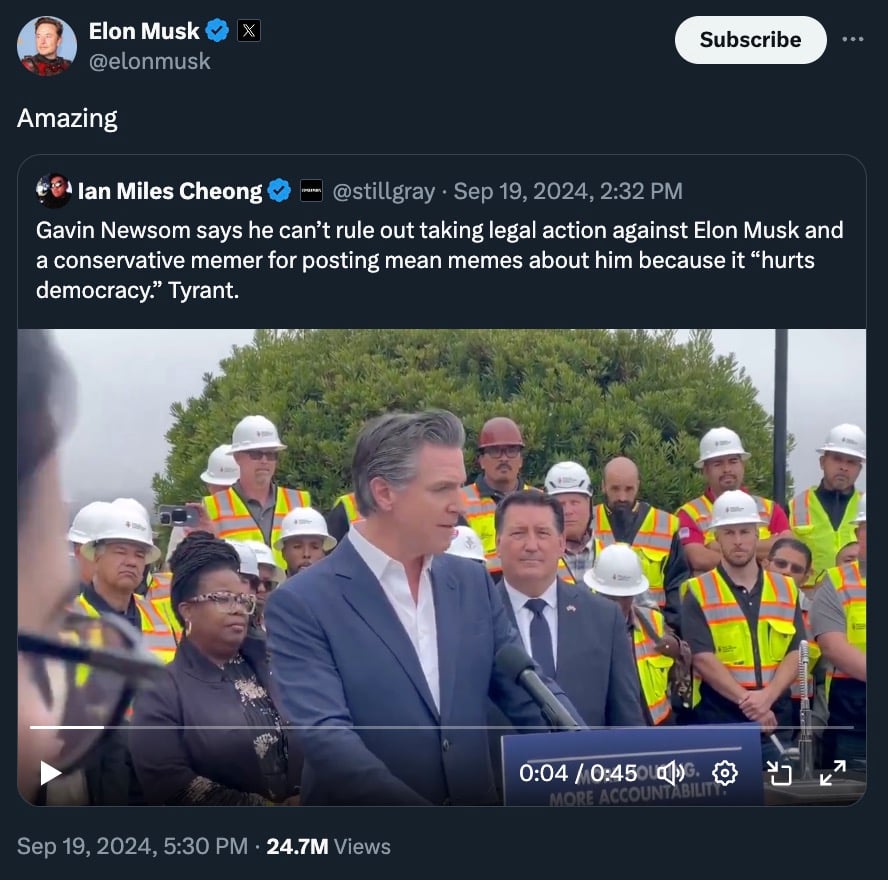California Governor Gavin Newsom has managed to “amaze” Elon Musk with his latest foray into censorship – a threat of a lawsuit, related to the X owner sharing memes and an AI-generated parody video.
“Amazing” was his only comment to a video of Newsom addressing a press briefing and revealing he was not ruling out legal action against Musk and a meme creator of conservative provenance.

The content makes fun of Newsom’s party comrades and ideological allies, and for that reason, he concluded that they “hurt democracy.”
If it comes, a lawsuit would be based on a law Newsom signed earlier in the week, which he told reporters provides for the possibility of seeking an injunction.
The law itself is promoted as “protecting democracy from manipulation and deepfakes,” but Musk has already disagreed, saying instead that the goal of the draconian legislation – the most restrictive of its kind in the US – was to outlaw parody.
Newsom previously criticized Musk for sharing content involving Democrat presidential candidate Kamala Harris. The video poked fun at Harris by parodying one of her campaign ads, but just like other like-minded politicians, Newsom is pretending that he doesn’t understand what happened there.
In late July, he took to X to comment on the ad parody by calling it “voice manipulation that should be illegal” and vowing to sign a law to make that effect.
Musk reposted the video to show his followers what the California governor, in his own words, considers to be undermining trust, deteriorating an already volatile political climate, and of course, threatening elections and democracy.
Musk’s post, which ended with laughing emojis, read, “You’re not gonna believe this, but Gavin Newsom just announced that he signed a LAW to make parody illegal, based on this video.”
Those supporting California’s authorities’ ongoing efforts (started before the previous election, in 2019) to restrict (and now make illegal) content that is manipulated, regardless of the “genre,” said the state is a “leader” in this.
But opponents see it as a radical component in the “war on memes” launched after yet another presidential ballot – that of 2016.
Memes at that time became Democrats’ “enemy number 2” – right after the now debunked “foreign meddling” theory, used as justification for losing the election.






















